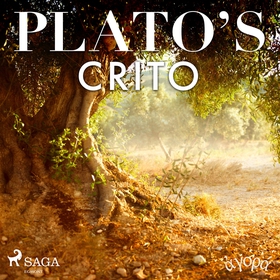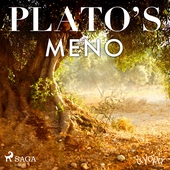
Lägg till önskelistan
Gratis smakprov
- Spara till biblioteket
- Lyssna på smakprov
Plato’s Crito ljudbok
Pris
19 kr
After Socrates is sentenced to death by the Athenian court, his friend Crito comes to the prison to help him escape and go to another country. Socrates responds by saying that he would accept Crito’s offer only if he can be convinced that it is right and just to do so. This dialogue is not only about Socrates’ particular choice but also about the very essence of law and community.
Plato lived in Athens, Greece. He wrote approximately two-dozen dialogues that explore core topics that are esse...
Ljudbok
19 kr
Pris
E-Bok
19 kr
Pris
Förlag
Saga Egmont
Utgiven
2 April 2020
Längd
0:29
Genrer
Filosofi Och Religion, Fackböcker
Språk
English
Format
mp3
Kopieringsskydd
Vattenmärkt
ISBN
9788726425703
After Socrates is sentenced to death by the Athenian court, his friend Crito comes to the prison to help him escape and go to another country. Socrates responds by saying that he would accept Crito’s offer only if he can be convinced that it is right and just to do so. This dialogue is not only about Socrates’ particular choice but also about the very essence of law and community.
Plato lived in Athens, Greece. He wrote approximately two-dozen dialogues that explore core topics that are essential to all human beings. Although the historical Socrates was a strong influence on Plato, the character by that name that appears in many of his dialogues is a product of Plato’s fertile imagination. All of Plato’s dialogues are written in a poetic form that his student Aristotle called “Socratic dialogue.” In the twentieth century, the British philosopher and logician Alfred North Whitehead characterized the entire European philosophical tradition as “a series of footnotes to Plato.” Philosophy for Plato was not a set of doctrines but a goal — not the possession of wisdom but the love of wisdom. Agora Publications offers these performances based on the assumption that Plato wrote these works to be performed by actors in order to stimulate additional dialogue among those who listen to them.












